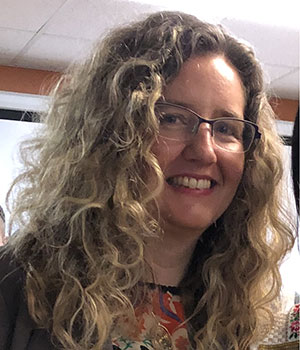
- sandym@uwm.edu
- 414-229-1173
- Enderis Hall 617
Marie Sandy, PhD
- Associate Professor, Administrative Leadership
- Wm. Collins Kohler Chair, Institute for Systems Change and Peacebuilding
I am concerned with issues that face urban, low-income communities and the social movements and practices that seek to change those realities. My scholarship focuses on the social context of education and philosophy of education, the social determinants of health and the role education plays in alleviating health disparities, with emphasis on race, gender, and class inequalities, and grassroots paths to social transformation. My current research strands involve 1) community-based health workers movement* (promotoras de salud) and other peer mentor learning groups for health and well-being in low-income communities; 2) designing and theorizing about qualitative community-based participatory action research and evaluation strategies; 3) overcoming family homelessness and supporting homeless families in school and community settings; and 4) public engaged scholarship through community-based research, community-academic partnerships, and service-learning in on-line and face-to-face contexts.
All aspects of my work integrate philosophical theory -- particularly feminist, liberal arts, and continental theory -- with public engaged scholarship to improve policy-making and promote change. I often use service-learning, community-based participatory action research, and community engaged pedagogies in my classroom and in my work with community organizations to co-design research projects. As a researcher, I work to ensure that the people “studied” in my research can draw on my work to better address the problems or situations they are experiencing, and that the research process itself is beneficial or at least a positive experience for them.
I worked previously as a community organizer and deputy director of a national non-profit organization, Wider Opportunities for Women, where I promoted the leadership of women in nontraditional jobs while advocating for national and local policy change to support family economic self-sufficiency, literacy, and economic development through job training and education systems.
Affiliate Faculty Positions
Joseph Zilber School of Public Health
Master of Sustainable Peacebuilding, College of Nursing
Urban Studies Program, College of Letters and Science
Selected Publications
Stevenson, M., Norrbom, C., Savela, M. Xiong, Y., Lee, T., Garcia, C., Winstead, O., Northrop, M., & Sandy, M. (2022). Community health workers in time of crisis: A COVID-19 case study. Journal of Humanistic Psychology. https://journals.sagepub.com/doi/10.1177/00221678221132718
Allen, K. & Sandy, M. (in press). Dewey, Freire...and Hip-Hop?: Using Hip-Hop Pedagogy in the Social Studies Classroom. In E. Adjapong & R. Baxter (Eds.). #HipHopEd: The compilation on Hip-Hop education Volume 4: Hip-Hop As pedagogy. Hip-Hop education innovation, inspiration, elevation series. Peter Lang International Academic Publishers.
Bonds, M. & Sandy, M. (2017). State-sponsored ‘new’ white flight through public school choice and its impact on contemporary urban schools: A case study of Milwaukee’s Open Enrollment program. International Journal of Regional Development. 4(1) DOI: https://doi.org/10.5296/ijrd.v4i1
Schutz, A. & Sandy, M. (2015). Friendship and public space in schools: Revisiting Hannah Arendt’s resistance to “political education.” Educational Theory, 65(1): 21- 38.
Sandy, M. (2015). A theory of practical beauty for service-learning and public-engaged scholarship. In O. Delano-Oriaran, M. Parks & S. Fondrie (Eds). Service-Learning and Civic Engagement: A Sourcebook. Thousand Oaks, CA: Sage Publications.
Franco, Z., Flower, M., Whittle, J. & Sandy, M. (2015). Professional ethics and virtue ethics in community engaged healthcare training, pp. 211- 229. In Professional responsibility: The fundamental issue in education and health care reform. New York: Springer.
Sandy, M. (2014). Pushed by an angel and hellbent on change: Mothers describe overcoming family homelessness. Humanity and Society, 38(4): 388-413 DOI: 10.1177/0160597614543741
Sandy, M. & Franco, Z. (2014). Grounding service-learning in the digital age:
Cultivating a virtual sense of place through collaborative online mapping and mixed media. Journal of Higher Education Outreach and Engagement, 18(4):1-34. http://openjournals.libs.uga.edu/index.php/jheoe/article/view/1347
Sandy, M. (2013). It’s sweeter where the bruise is: Making sense of the experience of family homelessness in a community-campus partnership.” International Journal of Qualitative Studies in Education. DOI: 10.1080/09518398.2013.805444
Sandy, M. (2013). Tracing the liberal arts traditions in support of service-learning and public engaged scholarship in the humanities. Humanity and Society, 37(4), 306-326. DOI: 10.1177/0160597613510704
Bonds, M., Sandy, M. & Farmer-Hinton, R. (2013). The rise and fall of a voluntary public school integration transportation program: A case study of Milwaukee’s 220 program (Milwaukee, Wisconsin 1976-2011). Education and Urban Society. DOI: 10.1177/0013124513497504
Sandy, M. (2012). Mothering as world-building and other Hera-cies: Understanding liberal arts lineages to support public engaged scholarship. Sofia Philosophical Review, 6(2), 25-48. http://sphr-bg.org/16/60/202.html
Sandy, M. (2011). Practical beauty and the legacy of pragmatism: Generating theory for community-engaged scholarship. Interchange, 42(3), 261-285.
Schutz, A. & Sandy, M. (2011). Collective action for social change: An introduction to community organizing. New York: Palgrave and MacMillan Press.
Sandy, M. & Holland, B. (2006). Different worlds and common ground: Community partner perspectives in campus-community partnerships. Michigan Journal of Community Service Learning, 13(1), 30-43.
*The term “community health worker” describes grassroots, adult front-line public health or social service workers who are close to and serve members of a community by helping them to adopt healthy behaviors and to advocate for systemic transformation of inequalities communities face. They usually share race and ethnicity, language, socioeconomic status, values, and/or life experiences with the community members they support.